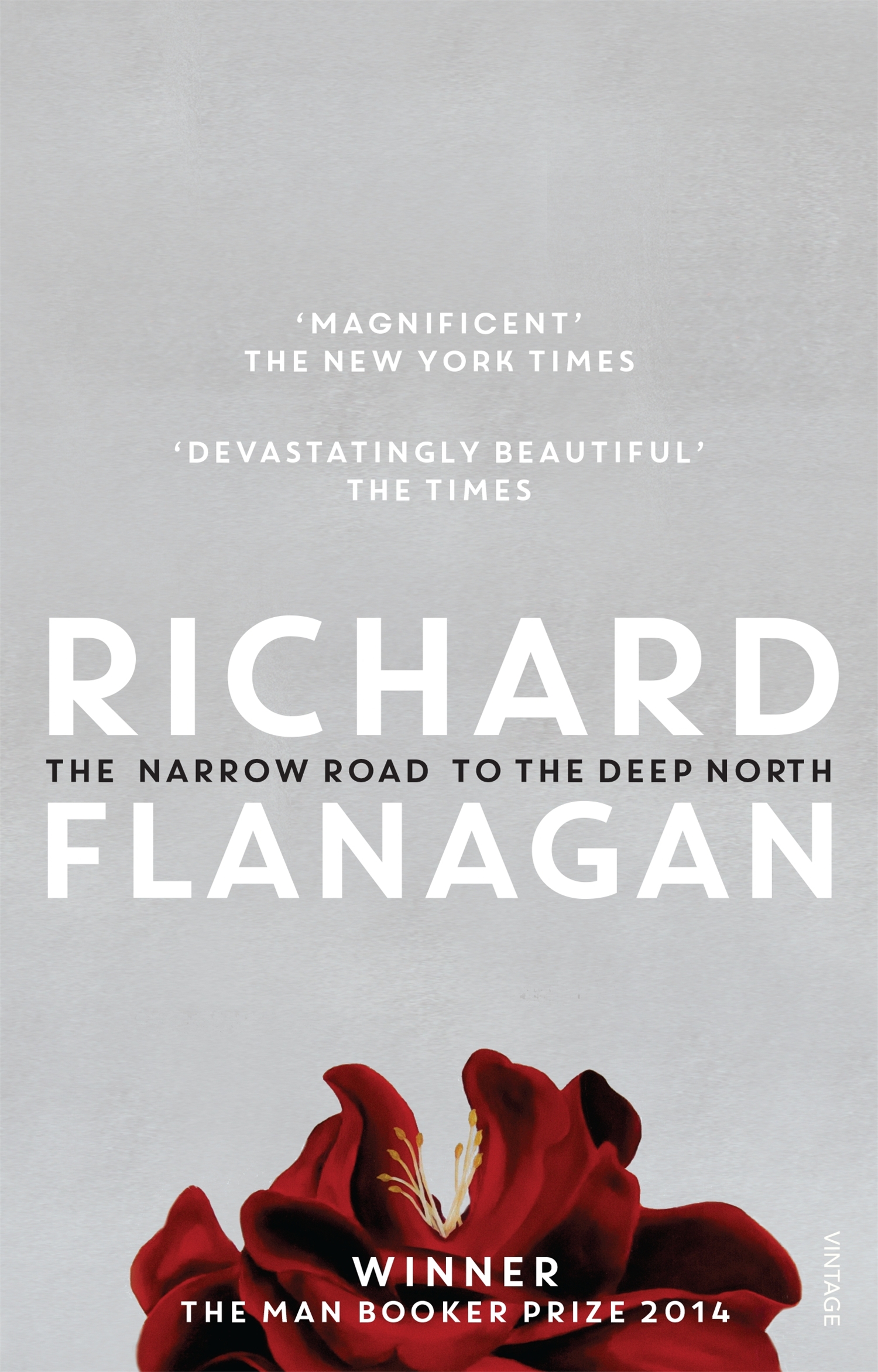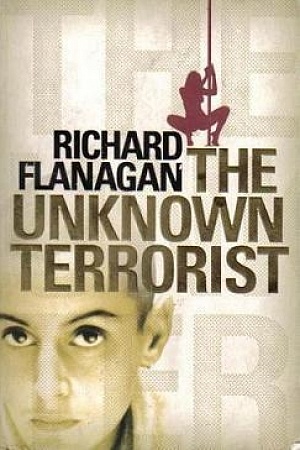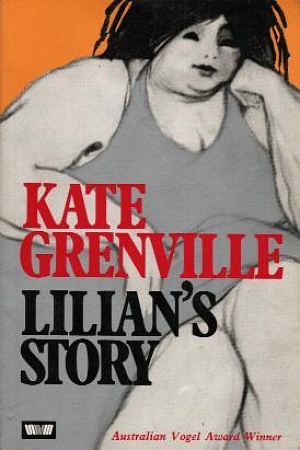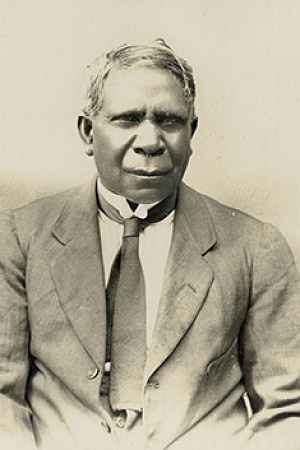Reading Australia: 'The Narrow Road to the Deep North' by Richard Flanagan
When Richard Flanagan won the 2014 Man Booker Prize for his sixth novel, The Narrow Road to the Deep North, it was not the first time that he had won an international fiction prize; his third novel, Gould's Book of Fish (2001), won the Commonwealth Writers Prize in 2002. Nor was it the first time that one of his novels had caused deep division among readers and critics; the influential Australian critic and reviewer Peter Craven had savaged Gould's Book of Fish in a review for The Age. But that novel had also been Flanagan's most successful until his Booker win, garnering two major national awards as well the Commonwealth Writers Prize.
The Narrow Road to the Deep North scooped an even bigger pool of prizes, winning the Man Booker and several national prizes and being shortlisted for several more, including the fiction section of the Prime Minister's Literary Awards. There, it initially lost out to Steven Carroll's novel A World of Other People, until the personal intervention of the then prime minister, Tony Abbott, who ruled that the two novels should share the fiction prize. As with Gould's Book of Fish, there were ructions within the Australian literary community; critics and prize judges were again deeply divided over the literary merit of Flanagan's work, their differences showing how broad a spectrum the term 'literary merit' can cover. The Narrow Road to the Deep North also attracted viciously negative reviews in two heavyweight British journals, the Times Literary Supplement and the London Review of Books – and yet, on the other side of the Atlantic, the literary editor of the Washington Post was saying 'Nothing since Cormac McCarthy's The Road has shaken me like this ... this is a classic work of war fiction from a world-class writer.'
Richard Flanagan was born into a large family in Tasmania in 1961, son of a World War II veteran and the fifth of six children. In his Man Booker Prize acceptance speech in London, he said: 'I do not come out of a literary tradition. I come from a tiny mining town in the rainforest in an island at the end of the world. My grandparents were illiterate. And I never expected to stand here before you in this grand hall in London as a writer being so honoured.' Not only was he honoured by the award, he was also saved from the fate he had been contemplating: when asked what he would do with the prize money, he replied that he would use it to live on and support his family while he continued to write: 'A year-and-a-half ago when I finished this book, I was contemplating going to get what work I could in the mines in far northern Australia because things had come to such a pass with my writing. I had spent so long on this book.'
His father, Arch, was one of the Australian prisoners of war who were put to work by the Japanese Army on the infamous Burma–Thailand Railway or 'Death Railway', built in 1943 to supply Japan's campaign against the Allies in Burma. On the Australian War Memorial's website is a brief, stark summary account of the building of the railway, which caused the deaths of over 2,000 Australian POWs and many more Allied and Asian prisoners:
The railway was to run 420 kilometres through rugged jungle. It was to be built by a captive labour force of about 60,000 Allied prisoners of war and 200,000 romusha, or Asian labourers. They built the track with hand tools and muscle power, working through the monsoon ... Relentless labour on inadequate rations in a deadly tropical environment caused huge losses ... The railway camps produced many victims, but also heroes who helped others to endure, to survive, or to die with dignity.
 The Narrow Road to the Deep North by Richard Flanagan (Vintage 2014 issue)
The Narrow Road to the Deep North by Richard Flanagan (Vintage 2014 issue)
Buy this book
These victims and heroes – many soldiers were both – and the building of the railway, lie at the centre of Flanagan's novel, both figuratively and literally: among the frequent chronological flashbacks that cover most of the twentieth century, its central section is a sustained and searing account of the camps and of the daily labour, abuse, injuries, and sickness that the prisoners endured. The main character, army doctor Dorrigo Evans, somewhat resembles the Australian war hero Edward 'Weary' Dunlop, who before the war had attained his degree in medicine and had played rugby for Australia: a man of extraordinary social, intellectual, and physical gifts. Dunlop was a lieutenant-colonel and became a legendary figure on the railway and afterwards; as a doctor and a natural leader, he was both an inspiration and a consolation to the Australian POWs he worked alongside. But The Narrow Road to the Deep North is fiction and Dorrigo Evans is a fictional character, not to be taken as a portrait of Dunlop. Flanagan gives his hero Evans some of Dunlop's abstract qualities and strengths, as well as his relationship with his fellow-prisoners and with the Japanese, but in other important respects the character is quite different.
On the other hand, the description of the railway itself and the conditions under which the prisoners worked is closely based on factual firsthand accounts, most of all on the stories that Flanagan grew up listening to his father tell. The question of the relationship between history and fiction is a rich and difficult one, often erupting into complex disagreements; a novelist who tackles a period of history must toggle constantly between accuracy in matters of historical fact and feats of imagination in the creation of individual characters and their personalities and fates. Flanagan's brother Martin, himself a journalist of great integrity and emotional intelligence, has said
... what we are talking about here today is a novel. A work of fiction. What that means to me is that it must have a life independent of any external events ... Richard's book succeeds in doing this and that is its triumph. This book teems with stories I've heard before but it is not those stories, partly because he has dismantled them and redeployed their various parts ...
The book's central section is framed by a broader story that encompasses Evans's whole life, and by the love story that transcends or exists on a different plane both from the horrors of the jungle and, after the war, from the realities of his daily life: a dull and fundamentally dishonest marriage, and a career that looks glittering from the outside but to him seems hollow, and is not without its disasters. But great love stories, says Flanagan, 'seek to demonstrate the great truth about love: that we discover eternity in a moment that dies immediately after'. His lover is called Amy, an allegorical name that makes her the very personification of love.
The fact that Amy is his uncle's young wife gives the story a faint whiff of the incestuous: it feels like a forbidden love not only because they are both formally committed to other people, but because it crosses generational and familial boundaries. It exists outside family structures, outside the bonds of marriage, outside the war, outside of death itself: having long believed Amy to be dead, Dorrigo lives the rest of his life as a sexual and emotional vagabond and cheat, floundering in the shadow of his loss. The scene in which, many years later, the two come face to face while crossing the Sydney Harbour Bridge may seem a Dickensian contrivance beyond the limits of realism, but in fact, like so much else about this book, it is an imaginative reworking of a true story once told to Flanagan by his father.
Flanagan's treatment of the question of race is among the most impressive things, and among the most important things, about this novel. In a war novel focusing on citizens of one country, the other side is unavoidably simplified and demonised as 'the enemy', especially if that enemy is of another race, but Flanagan goes to great lengths to illuminate the behaviour of the Japanese officers and guards and to explore what lies behind it. He defuses the problem of representing 'the enemy' in racist terms partly by presenting the Japanese officers and guards as individual characters with varying motivations and sensibilities (one of them is actually Korean). He also suffuses his novel, and the mind not only of his main character but also those of more than one Japanese officer and guard, with the poetry of both cultures; the book's title itself comes from a Japanese classic, as Flanagan has explained:
The Narrow Road to the Deep North is one of the most famous books of all Japanese literature. Written in 1689 by Matsuo Basho, arguably the greatest of all haiku poets, it takes the form of ... a nature journey made by the poet ... If Basho's The Narrow Road to the Deep North is one of the high points of Japanese culture, the experience of my father and his mates is one of its low points.
Flanagan's account of the building of the railway and the kind of life led by the prisoners who built it is detailed and unflinching; at its meaty, beating heart is an account of the savage punishment and subsequent death of Dorrigo's mate and fellow-prisoner, Frank 'Darky' Gardiner. This is clearly some sort of touchstone for Dorrigo; we meet Gardiner very early in the book, when Dorrigo, now in his late seventies, is brooding on his wartime past: 'Darky Gardiner died and there was no point to it at all.'
By the time Gardiner is hauled up in front of a Japanese officer to take a murderous beating for something he didn't do, we know him quite well: mercurial, fatalistic, dry-humoured, good-hearted, 'a man who pitied wet monkeys', someone who sings to stay sane, and steals and swaps to survive. While the nickname is an obvious clue and his other nickname, the Black Prince, might be another (even though he acquires it through his skills in the black market of the camps), no direct allusion to his ethnicity is made until well into the book. The person who eventually mentions it is the open racist and Hitler-admirer Rooster MacNeice: 'Rooster MacNeice hated bolshies but on balance he hated Darky Gardiner more. He was a common and dirty man, and like most half-castes not to be trusted.'
But who is Darky Gardiner really? One of the most frequently quoted pieces of advice to writers about structuring a narrative comes from the Russian playwright and short story writer Anton Chekhov, who said 'If in Act 1 you have a pistol hanging on the wall, then it must fire in the last act.' Flanagan's pistol on the wall appears in the opening pages, in two paired vignettes of adult intensity as seen through the eyes of the uncomprehending Dorrigo, who is still only a little boy:
Jackie Maguire was sitting in the Evanses' small dark kitchen, crying ... Jackie Maguire was an old man, maybe forty, perhaps older ...He heard Jackie Maguire say –
She's vanished off the face of the earth, Mrs Evans....
And Dorrigo didn't say to [his brother] Tom what he had seen a week before Mrs Jackie Maguire vanished: his brother with his hand reaching up inside her skirt, as she – a small, intense woman of exotic darkness – leaned up against the chicken shed behind the coaching house. Tom's face was turned in on her neck.
This small and momentary mystery is left hanging until near the end of the book, when the pistol is fired in a devastating fashion. In a conversation between the Evans brothers, now both old men, it is revealed that Darky Gardiner was the illegitimate, secret son of Tom and Mrs Jackie Maguire – 'His wife was a blackfella, you know?' – and was therefore Dorrigo's own nephew. 'A family called Gardiner was bringing the kid up ... After the last war I ran into a Hobart bloke who knew the family. They called the boy Frank, apparently. He died during the war. My only son, and I never even met him.'
Although Darky Gardiner shares his name with one of Australia's more mysterious bushrangers (this may be a coincidence, though the original Frank Gardiner – a Scot – had a horse called 'Darkie', so perhaps not), it would not be too much of a stretch to read this character as a kind of allegory or personification of the history of Australian race relations: he is treated brutally by the authoritarian race in charge, and he then dies an ugly, abject, tragic death. He also personifies the rejection of 'black and white' as a clear opposition or dichotomy: the story of Australia, going centuries back, is a story of a population many of whom who have both indigenous and Caucasian relatives and family, acknowledged or otherwise, by marriage, birth, or adoption. In the way he writes the character of Gardiner, Flanagan is unobtrusively dissolving the boundaries in the way we think about racial difference. The Narrow Road to the Deep North is a novel about a grim episode in wartime Australian – and Japanese – history, but it is also a landmark in our literary representations of indigenous Australians, in war and in peace.
References
1. Australian War Memorial website, 'Biographical Note: Sir (Ernest) Edward "Weary" Dunlop'.
2. Australian War Memorial website, 'The Burma-Thailand Railway'.
3. Charles, Ron. 'Review: The Narrow Road to the Deep North, by Richard Flanagan'. The Washington Post, 19 August 2014.
4. Flanagan, Martin. 'Richard Flanagan: The Long Road to Great Success'. The Sydney Morning Herald, 15 October 2014.
5. Flanagan, Richard. 'Freeing My Father'. The Sydney Morning Herald, 21 September 2013.
6. Flanagan, Richard. 'Acceptance Speech'. Man Booker Prize website, 15 October 2014.
7. Hofmann, Michael. 'Is his name Alwyn?' The London Review of Books, 18 December 2014, pp 17-18
8. Lever, Susan. 'Heroes, Certainly'. The Sydney Review of Books, 26 November 2013.
9. Raine, Craig. 'He might be falling'. The Times Literary Supplement, 17 September 2014.
10. Singh, Anita. 'Richard Flanagan: 'I had so little money after writing Man Booker Prize winner I nearly worked down mine'
11. Sullivan, Jane. 'Applause or Catcalls? You Be the Judge'











Comment (1)
I truly loved this book and my mind is full of the characters as if it is my own life and, in some part, my own experience. I ache for their pain. So very much to relate to and remember. Thankyou for this beautiful book.
Leave a comment
If you are an ABR subscriber, you will need to sign in to post a comment.
If you have forgotten your sign in details, or if you receive an error message when trying to submit your comment, please email your comment (and the name of the article to which it relates) to ABR Comments. We will review your comment and, subject to approval, we will post it under your name.
Please note that all comments must be approved by ABR and comply with our Terms & Conditions.